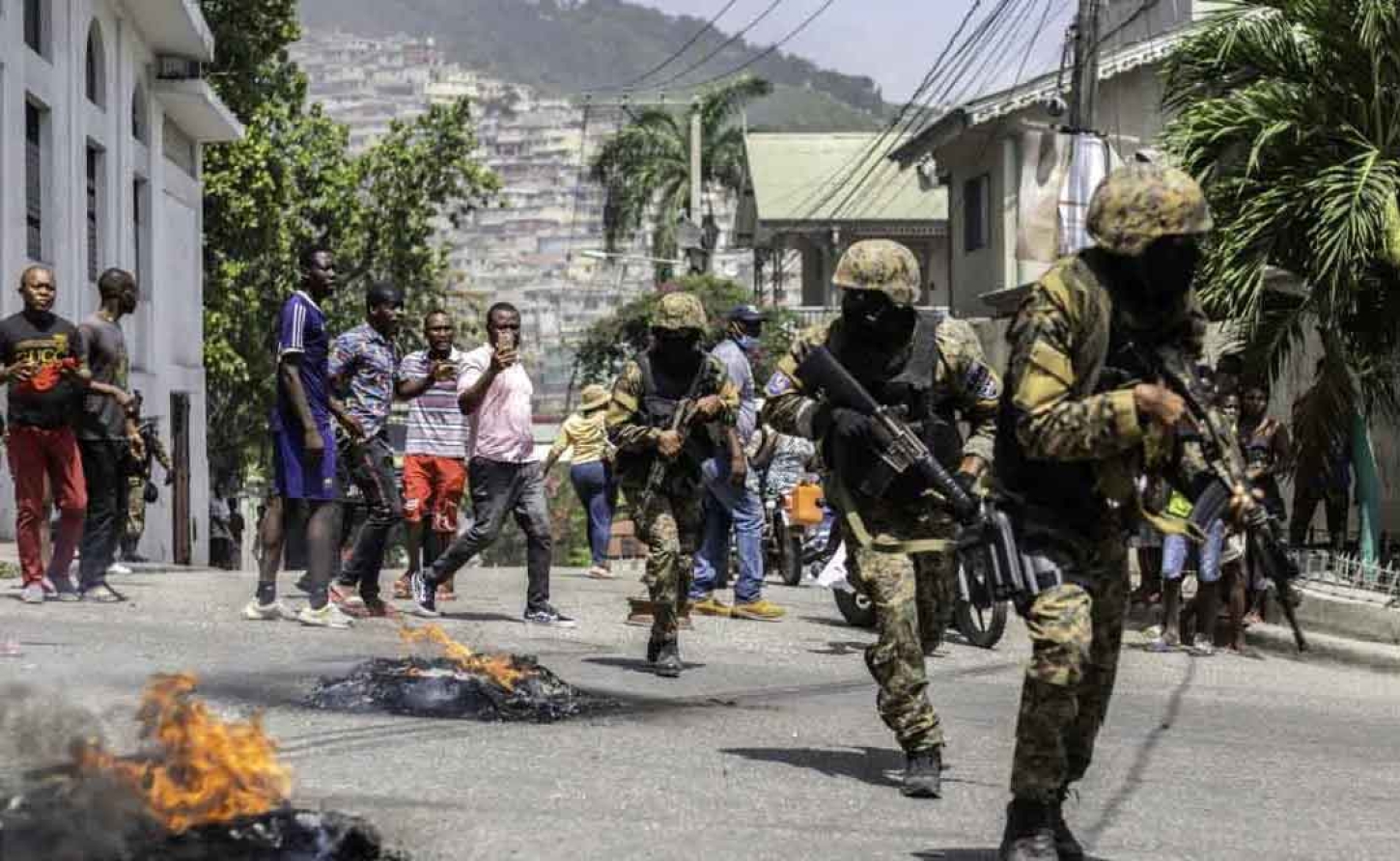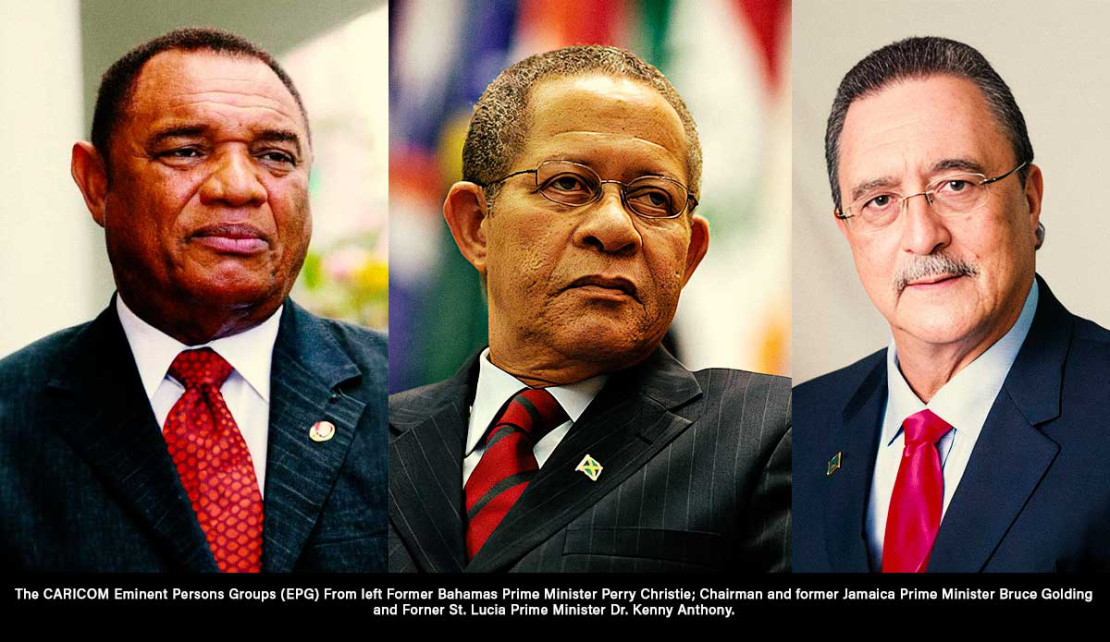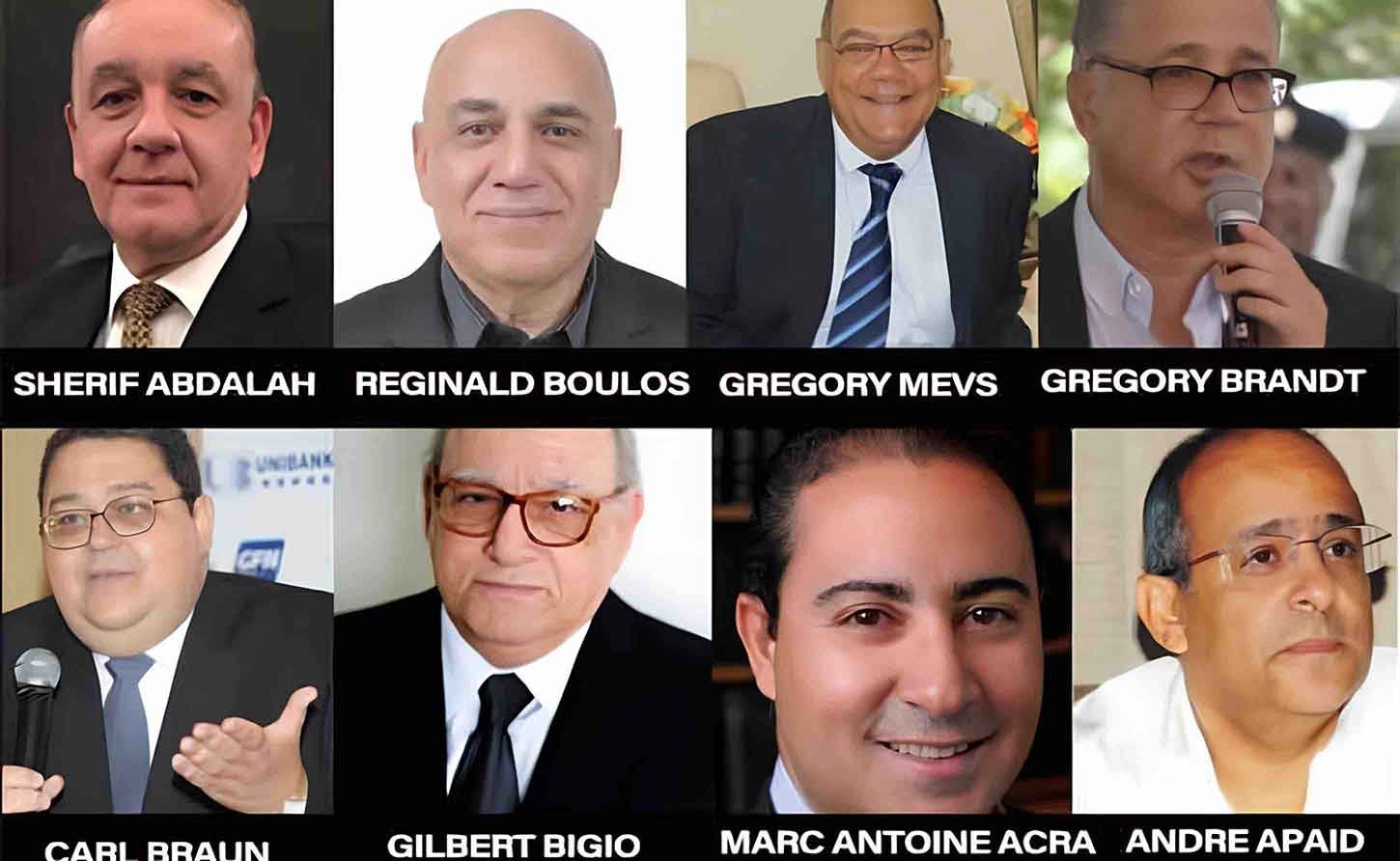HAITI'S Oligarchs Laugh While CARICOM Plays Politics and Kenya Bleeds for America's Proxy War

MONTEGO BAY, Jamaica, July 17, 2025 - On June 25, 2024, two scenes of profound irony played out across continents and Global Africa. In Port-au-Prince, Kenyan police officers stepped off planes to restore order in Haiti, while simultaneously in Nairobi, Kenyan youth stormed their own parliament building in deadly protests against crushing tax increases. At least 23 people were killed in the clashes in Kenya, with protesters setting fire to parliament just after lawmakers voted to pass the controversial finance bill.
The bitter paradox was inescapable: Kenya was exporting security forces to stabilize the Caribbean while its own democracy hemorrhaged in the streets. This wasn't coincidence—it was the calculated outcome of a US-orchestrated mission that prioritized geopolitical convenience over human dignity, Caribbean self-determination, and African sovereignty.
The Making of a Proxy Mission
The path to this troubling arrangement began in Washington's corridors of power, where officials sought a solution to Haiti's gang violence without deploying American troops. Despite "frantic" exchanges from Haitian leaders for Washington to send in an emergency unit at the peak of recent violence, the US refused, promising to move quickly on the MSS deployment instead. President Biden had "flatly ruled out putting US boots on the ground in Haiti", creating a vacuum that needed filling.

Biden sweetened the deal by bestowing on Kenya the title of "non-major NATO ally" – a major move expected to enhance an already tight security cooperation with Nairobi. The message was clear: Kenya's loyalty would be rewarded, even as its people suffered under austerity measures demanded by international creditors.
CARICOM found itself in an impossible position. Caribbean leaders had been briefed by Secretary of State Antony Blinken "on the decision of the Summit of Caribbean Countries (Caricom) and the US, together with other partners, on the political situation in Haiti". Yet images from Port-au-Prince showed "a motorcyclist passing burning tires during a demonstration against CARICOM" on March 12, 2024, revealing how some Haitians viewed regional complicity in this externalized solution.
The regional body's response has been telling in its superficiality. CARICOM's Eminent Persons Group (EPG)—consisting of former Prime Ministers Perry Christie of The Bahamas, Bruce Golding of Jamaica, and Kenny Anthony of Saint Lucia—appears hell-bent on implementing elections at the first opportunity. This isn't because elections will solve Haiti's crisis, but because they need to demonstrate to Washington that CARICOM is "doing something" to provide a solution through its "Good Offices" mandate.
This theatrical urgency for electoral processes, led by three former leaders who understand exactly how Caribbean politics actually works, deliberately ignores what every seasoned politician knows: the problem is far more deep-seated than meets the eye. Christie, Golding, and Anthony have collectively decades of experience navigating oligarchic pressures in their own countries—they know intimately how economic elites can make or break governments regardless of electoral outcomes.
Elections without addressing oligarchic control aren't democracy—they're legitimization ceremonies for continued exploitation. Yet the EPG continues pushing for electoral timelines while carefully avoiding any mention of the economic structures that make genuine governance impossible. This isn't leadership; it's managed complicity by experienced politicians who know better, designed to satisfy American expectations while avoiding the difficult conversations that might actually matter.
 The Cost of "Solidarity"
The Cost of "Solidarity"
The human cost of this arrangement has been devastating on multiple fronts. In Kenya, a judge declared in January that the government did not have the authority to send police officers to Haiti under Kenyan law, ruling the deployment "contravenes the constitution and the law and is therefore unconstitutional, illegal and invalid". Ruto simply ignored the ruling, bypassing the court order by signing a direct agreement with Haitian Prime Minister Ariel Henry in Nairobi on March 1, 2024.
The domestic blowback was swift and bloody. Mainly youth-led rallies began last week in a largely peaceful fashion as thousands protested against the proposed tax increases, but tensions spiked on Tuesday as Parliament passed the bill. The violence that followed—with at least 23 people dead according to Kenya's Police Reforms Working Group—occurred while Kenya's police resources were being diverted to Haiti.
Even those deployed faced abandonment. Hundreds of Kenyan police officers leading the international policing force in Haiti have not received their full pay for two months, adding insult to injury for officers risking their lives in an underfunded mission.
Caribbean leaders watched with growing unease. Roosevelt Skerrit, Dominica's prime minister and former head of CARICOM, called the Kenyan court's initial blocking of the mission "a major setback for the people of Haiti" and warned it "warrants an emergency meeting of the friends of Haiti to determine with the Haitian people the plan B".
Mission Impossible: Six Months Later
The results speak for themselves. More than six months after deploying to help police wrest back control, rampant gangs have gained more territory and power while access to vital humanitarian aid for desperate civilians has dwindled. The 400 Kenyan police deployed in late June 2024 have largely been left alone to help the outmanned and outgunned Haitian National Police combat heavily armed gangs who know the streets of the capital well and control nearly all of them.
But the mission's failure isn't just about insufficient numbers or funding—it's about deliberately ignoring the root cause. Haiti's gangs don't operate in a vacuum; they're financed and directed by the very oligarchs who profit from chaos while living in luxury. Yet neither the US, Canada, nor CARICOM have mandated that representatives of these powerful families come to any negotiating table to discuss gang financing, elections, or peace.
This glaring omission isn't oversight—it's design. The international community prefers the theater of military solutions over confronting the economic elites who actually control the levers of violence. Local Haitian voices reflect not just the mission's futility but its fundamental misdirection. One resident asked, "I heard there were Kenyans in the country, but where are they? Why are they in Haiti if we don't see any difference?" The mission remains severely underfunded and ill-equipped, with most countries that pledged support having failed to follow through.
 Behind the chaos lies a calculated system of exploitation orchestrated by billionaire families who profit from violence while hiding behind diplomatic immunityThe Broader Implications
Behind the chaos lies a calculated system of exploitation orchestrated by billionaire families who profit from violence while hiding behind diplomatic immunityThe Broader Implications

This debacle reveals dangerous precedents for both Africa and the Caribbean, but more fundamentally, it exposes the international community's willingness to militarize symptoms while protecting causes. The conspicuous absence of Haiti's oligarchs from any peace process reveals the true nature of this intervention: it's not designed to solve Haiti's crisis but to manage it.
Why aren't the families who finance gang operations being dragged to negotiating tables in Kingston, Washington, or Ottawa? Why do peace talks focus on transitional councils and electoral timelines while the economic architects of violence remain untouchable? The answer is uncomfortable: because many of these oligarchs maintain business relationships and political connections that extend far beyond Haiti's borders, into the very capitals now deploying police forces.
The pattern is as predictable as it is devastating. Any freely elected Haitian government that attempts genuine reform quickly learns they must "play ball" with these oligarchs or face overthrow—just ask former President René Préval, who witnessed firsthand how economic elites could destabilize even popular administrations that threatened their interests. This isn't democracy; it's oligarchy with electoral theater, where the real power brokers remain permanently off-limits to any peace process.
When external powers orchestrate security solutions that bypass both regional sovereignty and economic accountability, the results are predictably catastrophic. Kenya's young people paid with their lives for their president's international ambitions, while Haitians remain trapped in violence that foreign police forces cannot—and are not designed to—solve.
The Caribbean must recognize that externalized security solutions—whether from African proxies or Western powers—cannot address the root causes of instability when those causes are deliberately protected from scrutiny. True security comes from regional solidarity, economic justice, and the courage to confront those who profit from chaos, regardless of their connections.
Until the Caribbean region and its diaspora demand authentic accountability that reaches into boardrooms and not just streets, both Africa and the Caribbean will continue paying the price for others' geopolitical theater.
The blood spilled in Nairobi's streets stands as a reminder: solidarity built on the suffering of others while protecting the powerful is no solidarity at all.
-30-
